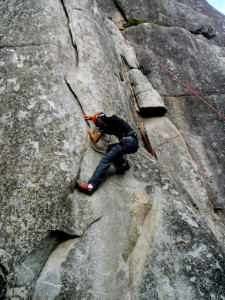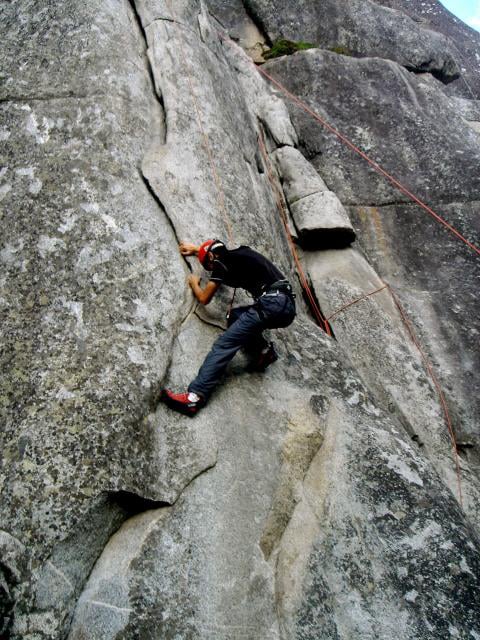For students enrolled in the winter quarter course GES 7B: An Introduction to Wilderness Skills, picking up cold weather survival skills—dressing in multiple layers to keep warm, preparing food outdoors by lighting coals and building shelters with snow barriers encircling them—is both a practical and academic imperative.
“In the wilderness, everyone is cold and miserable—there are not many resources,” said Jeff Chen ’13, one such student. “It’s harder to delegate tasks, decide on who does what and to manage relationships in this setting. But we learned how to depend on each other.”

Each quarter the Outdoor Education Program (OEP)—founded by students in 1989 through the athletics department—offers one-unit introductory courses to educate the Stanford community on wilderness travel techniques and expose students to outdoors experiences such as backpacking, rock climbing, backcountry skiing and snow camping.
The fall quarter class (GES 7A: An Introduction to Wilderness Skills) is an introduction to backcountry travel, the winter class is an introduction to winter backcountry travel and the spring class (GES 7C: Advanced Wilderness Skills) is geared towards students with advanced experience who want to develop leadership skills.
“The goal of these introductory classes is to develop students who have never been outside to the point where they can lead a trip on their own,” said Vivian Ericson Ph.D. ‘14, an OEP instructor and former president of Stanford Outdoors—an umbrella organization that contains many other outdoor-related groups.
Student volunteers with high levels of wilderness skills and leadership abilities teach the classes, leading students on four weekend-long trips to state and national parks where they teach students to backpack and camp in the backcountry.
In addition to teaching wilderness traveling techniques, the program also looks to cultivate skills like leadership, group dynamics and risk-management while fostering a multi-dimensional development in students, according to instructors.
“It’s not just about the hard skills,” said Travis Walker M.S. ‘10, Ph.D. ‘14, an OEP instructor. “Students come out of the class also with the soft skills necessary for leading their own trip.”
Instructors cited the classes’ introductory nature as leading to a more diverse range of students, spanning many fields and interests.
“I am a biology Ph.D. student, and I get to talk to undergraduate anthropology majors,” Ericson said. “Normally that just wouldn’t happen.”
Instructors also represent diverse origins. One OEP instructor had previously attended the United States Military Academy at West Point and was highly proficient in group dynamics and leadership. Another instructor, a Knight Fellow from the Stanford Graduate School of Journalism, shared his experience serving in a military division that focused on mountain travel.
Despite the range of expertise, friendships and a deep sense of community often arise from the classes, according to Walker.
“You have a group of people who don’t know each other come into the class, but over the course of eight weeks, they spend eight nights together in the back country and really get to know each other,” Walker said. “They build a strong community, and many students and instructors still go on trips together after the class, or outside of OEP.”
Elise DeBuysser ‘13 said that she enjoyed the class, learning enough to lead her own trip this spring and also becoming involved in the broader Stanford outdoors community.
“Ultimately it got me hooked on the backcountry and gave me skills to confidently do these trips outside of a class setting,” DeBuysser said. “It also motivated me to learn more about the places I visit and do serious planning ahead of time for safe and fun excursions.”
